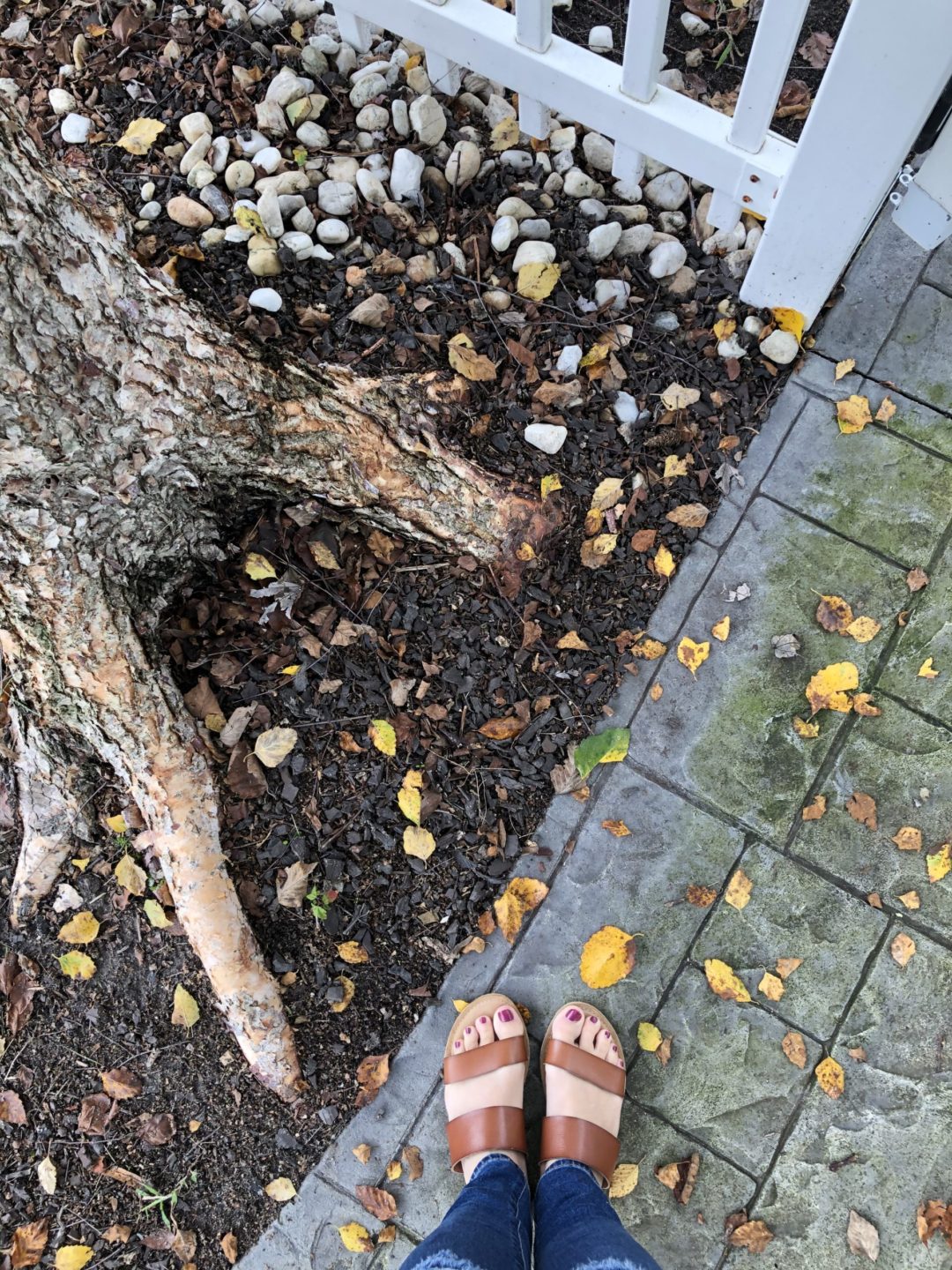
Will We Die to Our Rights?
There was only one place in town to buy pork, and I was hungry for bacon. So I snuck into the little shop, paid the shop owner for the largest slab I could find, and then tucked it deep within my purse. As I made my way down the street, I kept glancing behind me. Did anyone notice where I had just shopped? Would a taxi driver even let me into his car if he knew what I had under my arm?
I was living in a predominately Muslim country. Pork is forbidden and many Muslims refuse to eat from pork-tainted dishes. Most of my colleagues never purchased, prepared, or ate pork. They didn’t want to offend Muslims who visited their homes. Muslims never came into my home, so I had more freedom. But each of us had a choice to make.
As westerners, we were free to do as we wanted. We could legally buy pork, store it in our fridges, and eat a side of bacon every morning. We had the right to do many things, but we often chose to give up those rights.
I wore long-sleeved tunics to cover my backside and hide my arms. When I out in public, I never had wet hair or sat in the front seat of a taxi. I wore a fake wedding ring to ward off inappropriate advances and did everything within my power not to make eye contact with men. When the 2004 presidential election came, I opted out of voting. I didn’t want to engage in hot political debates or become a target for the often volatile opinions of taxi drivers.
Undoubtedly, I did many things wrong. Like the time I rode in the front seat of a truck, at night, with young men who couldn’t speak English. I was completely at their mercy as we rumbled through the city together so they could deliver my couch. Or the time I wore a bikini at the Red Sea, fully embracing my western freedom while women in burqas played with their children in the sand. My choices weren’t perfect, and I imagine I offended many Muslim people.
But I tried. I wanted to love those around me. No, my appearance and behavior wouldn’t win them to Jesus, but it was possible to turn people away from him.
++++++++++++
I’ve been thinking a lot about the months I spent in the Middle East. As we navigate life in a pandemic, I waffle between wanting to do whatever I want because, freedom! And simultaneously wishing the rules were more black and white. I’m weary of wondering whether or not my decisions will offend someone. Even more challenging is the reality of my heart: I’m quick to judge others’ choices based upon what I think is ‘best practice’ for living in a pandemic.
I spent years preparing to live overseas by building friendships with missionaries, going on short term missions trips, and eventually earned a degree in Intercultural Studies. After college I moved to another culture and tried to put all I had learned into practice. I didn’t anticipate the need to apply some of those cross cultural ministry skills to life within my own culture.
Yet I find myself constantly confronting the issue of my rights.
++++++++++++
Of the decade I spent in missionary preparation, one of the most formative books I read was titled, Have We No Rights? A Frank Discussion on the “Rights” of Missionaries. In her book, author and missionary Mabel Williamson shares about the rights she and her colleagues surrendered. In their new culture, rights as they knew them did not exist. Anyone could interrupt, question, invade, or disturb areas of life most westerners consider off limits. In order to effectively share the gospel, she allowed people to intrude on her rights.
Her conclusion provides a profound lesson: As Christians, our love for Christ calls us to constantly die to our perceived rights.
Dying to self is hard. It bristles against our nature and we push back on whatever threatens our freedom. Whether it’s the loss of freedom to send our kids to school, go out in public with a runny nose, shop without a mask, or attend church without registering beforehand, we don’t want someone to tell us what to do or how to do it.
I don’t like the new rules and guidelines anymore than you. I’m ready for a post-COVID life where world-wide masks are a chapter in the history books. But as we continue to embrace ‘our new normal’, I think we can learn something from those who live in cross-cultural settings.
Our love for Jesus ought to compel us to die to our rights.
Will it be hard? Yes. Are we going to do it imperfectly? Of course. Will our decisions make people upset? Will people judge or mock us? Probably. And we’ll be tempted to yank back our rights and wave them in the face of those who threaten or oppose our freedoms. Yet because of Jesus’ sacrifice on our behalf, we can leave our rights at the foot of the cross.
Jesus willingly gave up everything. He left his place at God’s right hand and sacrificed his life so we could have a relationship with God (Philippians 2:4-8).
The specifics of dying to our rights will vary, but at the core, it’s choosing to embrace what feels uncomfortable, inconvenient, or annoying because we love God and others. Giving up our rights communicates to those around us, “I love friends, church members, and strangers more than myself. And if this small act of inconvenience demonstrates a willingness to consider the good—potentially the life and eternal soul—of another, then I can lay down my right for you.”
++++++++++++
Jesus gave us an example to follow, but he also gave us a new identity. As Americans, we have certain “unalienable rights”, but as Christians, our identity runs thicker than a country printed in our passports.
We are citizens of heaven (Philippians 3:20). We have privileges, rights, blessings, and an eternal inheritance far greater than anything we could ever hope for (1 Peter 1:4ff). As royal priests in God’s kingdom, we surrender our earthly rights—our desire for comfort, our longing to be right—in order to proclaim the excellencies of him who called us out of darkness into his marvelous light (1 Peter 2:9).
If we are in Christ, the rights to God’s kingdom are ours. As citizens of God’s kingdom, laying down our rights isn’t a kind gesture or an act of charity. It’s a call, a mark of whose we are, and a sign of our allegiance.
May we allow the riches of our rights as sons and daughters, with the privilege of calling God, “Abba, Father!” to compel us to love others whatever the cost. Whatever we may need to surrender. Regardless of how uncomfortable, inconvenient, or annoying it may feel.
++++++++++++
My teammates in Jordan and I agreed on many standards, but we disagreed on others. I got a good talking to for riding in that delivery truck by myself—and rightly so. No one scolded me for buying bacon. Together we sought to spur one another on in our bigger goal: making much of Jesus.
May we do the same. May we look to Jesus and pray for a willing heart to give up our rights. And may we joyfully say, “I will lay down my rights because Jesus laid down his life for me, I belong to him, and in this small way I can take up my cross and follow after Christ.”


3 Comments
Carrie
I think you make excellent points here; having lived in Argentina as a missionary I can relate to your experiences, too. And I’ve had conversations with fellow Believers about these things. It’s been hard for me because most of them disagree with this point of view. I really stirred the pot when I recently said that (regarding COVID issues) we have to think as Christians first, Americans second. One of my friends is still angry with me. It was encouraging to read someone who is on the same page. Thanks for writing this.
Alex Bice
Thanks so much for this Lauren, this topic has so ministered to my heart today:)
Ted Allston
Wearing a mask in these pandemic days seems to me to be a gospel imperative. Not wearing a mask in public places says to many around us that we don’t care about their concerns and fears. If someone communicates that to us will we be inclined to listen to her tell us about what’s important to her? Not so much I think.